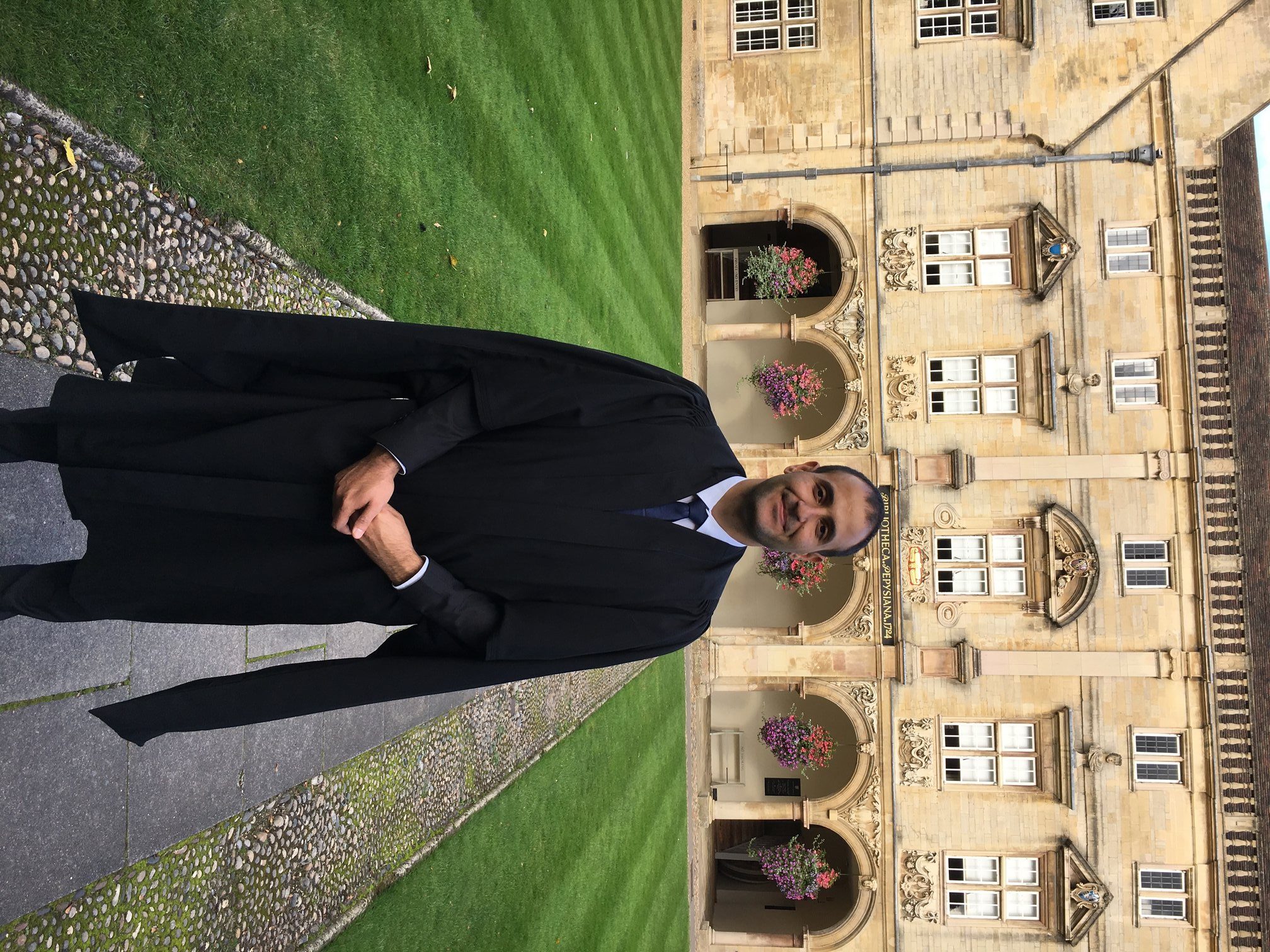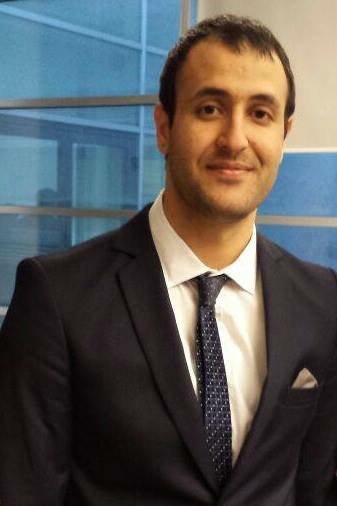
Fazal Hadi speaks about his research into why the naked mole-rat is cancer resistant.
There is a great sense of community at Gates Cambridge and you can collaborate with people from different disciplines over a coffee. Whole new ideas can be born just in that moment.
Fazal Hadi
The naked mole-rat has been described as the ugliest animal in the world. It is also one of the few species which is resistant to cancer. Fazal Hadi’s research seeks to understand why.
He describes the animal, which lives up to 32 years, as fascinating. It hails from East Africa where it lives in underground burrows in very organised colonies with a single breeding female called the queen and around three mating males.
All other members of the colony carry out different functions, such as protecting the colony from outsiders, looking for food and helping the queen take care of the pups.
“It is not known why naked mole-rats are cancer resistant and my PhD seeks to understand that,” says Fazal [2015]. “There has been some research on its cancer resistance, but that has not yielded much information. There is still a lot we don’t know.” He is beginning to see some interesting data which he says could change the way we think about naked mole-rats and their cancer resistance.
Fazal’s research has recently earned him a Bye-Fellowship at Magdalene College. The Fellowship is for second-year graduate students who show outstanding academic progress and promise, whose career is likely to benefit from election to a Fellowship and who will contribute most to the Fellowship and College academic life.
A circuitous career path
Fazal’s PhD is in Pharmacology, but his academic career has not been a straightforward one. He has not been afraid to question what he wanted to study and to change course along the way until he arrived at his current research path – a path to which he is wholly committed.
He showed very early academic promise. He grew up in a rural village in Swat Valley in Pakistan. From an early age he would rarely go to sleep without reading beforehand. His family soon noticed his academic prowess and encouraged it. His eldest brother helped him with his maths, going through everything he had been taught at school with him and making him redo exam papers so that he learned from any mistakes he had made. “My eldest brother was a real support and it helped me a lot. He has been there for me ever since. He and my parents always encouraged me and told me I could achieve,” says Fazal. “If it was not for them I would not be where I am now.”
Fazal went to his local primary and middle school. In his final two years of school he moved to a strict school with long hours of study. He says the training has stood him in good stead and he still visits his teachers every time he returns to the area.
At school he also became involved in conservation work and volunteered for the Red Cross. He continued that community work at university where he ran a blood donor society and organised blood donations camps. He also worked with the World Health Organisation and Unicef on a vaccination campaign for polio and measles. “I felt I needed to give back and do something for society,” he says.
Fazal wasn’t sure whether he wanted to do medicine or pharmacy at university, but ended up choosing a pharmacy course at the University of Peshawar. However, he was also offered a place in mechatronics engineering. After a year of deliberation he decided to change course and apply to study in Europe. He decided to go to Italy to study Biomedical Engineering which brought together medicine and engineering, but the course was not what he had imagined and adapting to the Italian education system was a challenge. After a year Fazal switched to Biotechnology at the University of Camerino with his family’s support.
He was able to do his first two years in one so he could catch up. He took to biotechnology immediately. He had found his focus.
Bioetechnology and cancer research
Fazal was inspired to do research by epidemiologist Professor Fulvio Esposito who taught him biology in his first year. Fazal’s undergraduate thesis, supervised by Dr Valerio Napolioni, was on human genetics with a focus on DAT1 – a gene encoding dopamine transporter. Using a genetic-demographic approach, Fazal and his fellow researchers were able to identify an association between a particular DAT1 variant with human lifespan.
During his undergraduate studies, Fazal spent six months on an Erasmus placement at Dr Walid Khaled’s lab in Cambridge because he wanted to get a broader experience of his subject and was interested in cancer research. He initially came for three months to work on breast cancer research, but that was extended to six months. At Cambridge he met Gates Cambridge scholars and Pharmacology students. The experience led to him applying to the university for his postgraduate studies. “This experience cemented my interest in cancer research and I knew Cambridge was the place I wanted to continue my studies,” he says.
Fazal applied before he completed his undergraduate degree in February 2015 and started his PhD in October 2015. He hopes to continue in academia when he has finished and says he is very happy to be a Gates Cambridge Scholar. He says: “It is very diverse and open. There is a great sense of community and you can collaborate with people from different disciplines over a coffee. Whole new ideas can be born just in that moment.”

Fazal Hadi
- Alumni
- Pakistan
- 2015 PhD Pharmacology
- Magdalene College
Previous Education
Universita Di Camerino












